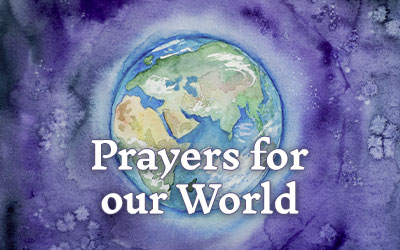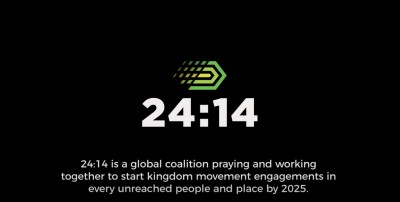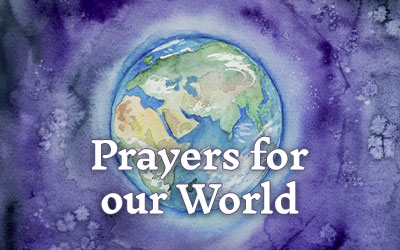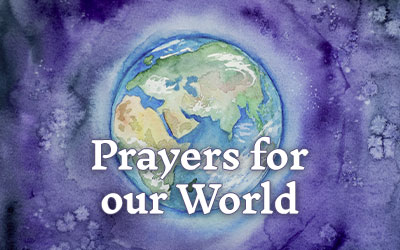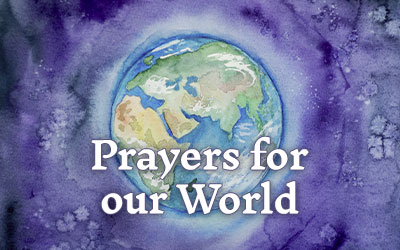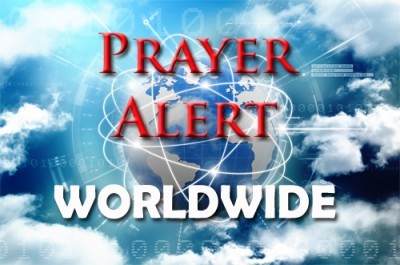The Heart of Man” is a story inviting us to leave behind our broken, moralistic and religious way of thinking and relating to God and to others.
Once we begin to know who God is (and as a result who we are), we have something to invite the world into.
Freedom from performance.
Freedom from managing our behavior so we appear acceptable to God.
Freedom from our addictions, compulsive behaviors, secrecy and double lives.
This film tears the veil of confusion over the church's current identity crisis and enables it to invite the rest of the world to the banquet God is throwing all of us.
https://www.youtube.com/watch?v=ZZPy_WRywzY
Amazon: https://www.amazon.com/Heart-Man-William-Paul-Young/dp/B0771X3LRH
The Heart of Man is a cinematic retelling of the parable of the Prodigal Son, intertwined with contemporary and poignant true testimonies of sexual brokenness.
These genres are combined to reveal the compassionate heart of God the father for his sons and daughters illuminating an age-old truth: Shame is not a barrier to God's love, but a bridge to absolute transformation, freedom and hope.
A shocking study reveals youngest children face worst sex abuse
'We are also speaking about … babies who are just months old'
A new analysis of an international database of child sexual-abuse cases found that the victim in 5 percent of the cases was an infant or a toddler, and a surprising percentage of the abusers were women.
The study, “Towards a Global Indicator on Unidentified Victims in Child Sexual Exploitation Material,” was done by EPCAT International, a global network of 102 civil societies and organizations in 92 different nations.
Funded by the European Union, it analyzed photos and videos in INTERPOL’s International Child Sexual Exploitation database.
Disturbingly, the study found that the younger the victim, the more severe the abuse was likely to be. The study looked at ages, ethnicity and the likely location of the filming of the abuse.
If found that the vast majority of online child sexual abuse material is made by those in the victim’s circle of trust.
That means “identifying the victim is a priority, because as well as providing an opportunity to remove the child from harm it is often the first step in identifying the offender.”
It noted that there are limitations to the conclusions, because about half the world’s population lives in nations that are not connected to the database yet.
The analysis found 65 percent of the victims were female, 31 percent male and the rest of the offending material depicted both male and female victims.
“When boys were depicted in the abuse, it was more likely to be severe or involve paraphilic themes,” the report said. “It is often considered that most victims of sexual abuse and exploitation are girls. However, the significant proportion of boys depicted in unidentified images and videos in the ICSE Database invites closer attention to this group.”
More than three-quarters of the victims analyzed were white children, 10 percent Hispanic or Latino, 10 percent Asian and small percentages black, the report said.
“The ethnicity may be a proxy indicator for the location of the abuse or exploitation.”
On ages: “Where the unidentified victim’s age could be determined, 56.2 percent of cases depicted prepubescent children, 25.4 percent were pubescent children, and 4.3 percent were very young children (infants and toddlers),” the report said. “When victims were younger, the abuse was more likely to be severe.”
The report said it is “often assumed that victims of sexual abuse are older children.
“This may be due in part to increased media attention and public awareness surrounding the risks associated with young people’s use of technology and the internet, including the production of youth-produced material, but it may also be due to the fact that most people find it hard to imagine the extreme sexual assault of an infant. While the victimization of any child of any age is inexcusable, over 60 percent of unidentified victims in this study were prepubescent, including very young children (infants and toddlers). This finding highlights the need to reflect and potentially prioritize this age group in policy and programming.”
In cases in which the gender of the offender could be determined, 92.7 percent were male, and female offenders often were depicted with a male.
“It was almost always the males who recorded the sexual activity, while the female offenders were actively involved in the abuse of the child(ren),” the report said.
“In cases where females abused a child on their own … these lone female offenders appeared younger in age (some apparently in late adolescence or young adulthood) than those depicted abusing a child together with a male.”
The report said the role played by females “is apparently complex, particularly in terms of distinguishing females who act as proponents or facilitators of this crime, or both.”
The report also noted that experts could determine that 72 countries were identified as locations for the abuse.
INTERPOL officials said there are more than 1 million media files of child sexual exploitation and abuse in the group’s database.
The extremes reviewed in the study included gross assault, sadism, bestiality and even necrophilia.
“Unfortunately, most people do not realize that when we talk about child abuse, we are also speaking about very young children, babies who are just months old, being the victims of extreme sexual assault,” said Bjorn Sellstrom, INTERPOL’s Crimes Against Children unit coordinator.
“Victim identification is at the core of INTERPOL’s work in connecting global investigations into online child sexual abuse. This report underlines the need for more countries to connect to the ICSE database and become part of this important network of investigators dedicated to rescuing child abuse victims,” he said.
Bob Unruh joined WND in 2006 after nearly three decades with the Associated Press, as well as several Upper Midwest newspapers, where he covered everything from legislative battles and sports to tornadoes and homicidal survivalists. He is also a photographer whose scenic work has been used commercially.
WND.com
Pray for the protection of the children from those who want to abuse them in this frightful manner. Pray for the authorities to take strict, harsh action against those who mistreat the children in their nations.
Pray: that the media will begin to cover the plight of such children and that authorities in the USA and other nations where this is a problem will be moved to take action against pedophiles and pimps who engage in sex trafficking. Pray for a huge socio-political revulsion and that this kind of abuse of children, teens and young adults will be stamped out through strong action by our governments.
An invitation to participate: 24:14 vision to see all unreached people groups engaged with a Kingdom movement
We would like to ask for your prayerful consideration and help, to widen the canopy of prayer over the 24:14 vision. Please could you take a look at the attached information about “1 Partner 1 Day” which aims to have 24/7 prayer cover each month? A day a month being covered by different organisations.
This opportunity will help each of us focus on intentional prayer times in our organisations, pray for our ministries focus on the unreached and support the CPM teams who are working across the regions of the world to see all peoples with a CPM engagement. (see the attached document for details)
We are asking for each of you to consider committing each month to a particular day (of your choice), preferably a 24-hour period. This will enable us all to participate in the 24:14 vision, and join with others to cover the year with prayer 24/7.
Here isa brief summary of the 24:14 vision which you might find helpful for your ministries to look at:
24:14 Prayer Task Force
“This gospel of the kingdom will be preached as a testimony to all nations, and then the end will come.” –Matthew 24:14
24:14 is a global coalition praying and working together to start kingdom movement engagements in every unreached people and place by 2025.
We are a global coalition of individuals, teams, mission organizations, church networks, mission networks, and church planting movements fully submitted to Christ and devoted to seeing His Name worshipped in every corner of the world. To see this come to fruition, we are unified in commitment to three priorities:
REACHING THE UNREACHED We are trusting God to use our generation to fully reach multitudes from every tribe, tongue, people and nation with the glorious news of Jesus Christ. This is an ambitious, God-sized goal and we’re relying on Him to see it to fruition.
CHURCH PLANTING MOVEMENTS
We see God at work in the world through movements and are joining Him in launching kingdom movements in every unreached people group and place. We define a “kingdom movement” as reproducing disciples, churches, leaders and movements.
URGENCY
“It’s all about Jesus’ glory and He is being robbed of worship in thousands of places.” –Steve Smith
We are catalyzing these kingdom movements with wartime urgency to reach every unengaged, unreached people group and place with the gospel by December 31, 2025 ... no matter the cost. Together, we are mobilizing prayer, resources, manpower and more to this end.
JOIN THE COALITION
Interested in joining 24:14? Contact us online at www.2414now.net/contact-us.
HOW TO GET INVOLVED
- Read more about 24:14 https://www.2414now.net/articles
- Sign up to join the 24/7 canopy of prayer supporting the 24:14 vision and receive weekly prayer emails (contact This email address is being protected from spambots. You need JavaScript enabled to view it.).
- Sign up to learn more about how to partner in prayer with a specific DMM team who are seeking to reach UPGs in their location (contact This email address is being protected from spambots. You need JavaScript enabled to view it.).
- Set a 24:14 alarm on your phone for 12:14 pm each day, to remind you to pray for fulfillment of Matthew 24:14.
- Join a Geographic Stewardship Team (GSTMs) which will identify and/or train implementers who will seek to multiply disciples and simple churches within their focus People Group or geographic area. We need a huge number of volunteer GSTMs in many locations, to ensure the entire world is being covered. For more information, contact This email address is being protected from spambots. You need JavaScript enabled to view it..
- 24:14 Coalition 1 Partner/1 Day Initiative
- 24:14 Coalition: A network of organizations, networks and churches which are all committed to the 24:14 vision of praying and working together to start kingdom movement engagements in every unreached people group with urgency by 2025.
To this end, we, the 24:14 Prayer Task Force are seeking to develop a 24/7 canopy of prayer that will pray into this vision ofseeingeveryU/UPGengagedwitha teamfocusedonseeingamovementofmultiplyingchurchesanddisciples.We would like to see 31 organizations, prayer networks from existing movements, networks and churches commit to cover in prayer one day per month every month.
NEXT STEPS: YOUR RESPONSE To join the 24:14 1Partner1Day Initiative then please email to This email address is being protected from spambots. You need JavaScript enabled to view it.,
1 Please let us know the day of the month that you can commit to as an organization and how many hours in that day you are committing to pray and fast.
2 Please let us know the name and email of the prayer coordinator Our thanks on behalf of the 24:14 Prayer Task Force.
- A monthly prayer guide of informed prayer points that are specific, measurable, and Bible-based.
- Regular praise reports in order to encourage groups as they pray.
- Monthly or bi-monthly communication with a member of the 24:14 Prayer Task Force. This will be for the purpose of encouraging, informing, identifying gaps and challenges, etc.
Thank you for your partnership is sharing the Gospel to all peoples,
Jenny Oliphant
WWW.2414NOW.NET
For decades we have strived to openly share news and prayer requests from Asia, as we seek to help God's people extend the kingdom of Jesus Christ.
In this newsletter we have a deep burden to share with you, and we ask for your fervent prayers and intercession for our brothers and sisters in the Chinese house churches. They are now undergoing a fiery trial that is more fierce than anything experienced in China since the Cultural Revolution of the 1960s and 1970s.
In the past 18 months, the situation for Christians in China has dramatically worsened. At the start, we hesitated to publicly share new information from China for a few reasons. Some of the news we have received from church leaders is so dire that most believers around the world simply wouldn't believe it if we told them. We also wanted to make sure these things were not part of a short-term crackdown, as over the years we have seen numerous seasons of persecution come and go in China. However, we believe it is now time to present the known facts, to help people understand what our fellow believers are experiencing right now.
We have also shared several links to web pages in this message, to help people learn more about the situation from other sources. Please take the time to read these articles.
* President Xi Jinping—who is about to have the constitution amended so he can remain in power for as long as he wishes—first raised concerns among Christians about three years ago when he spoke about the need to control "illegal religion". Persecution has markedly worsened since then, and hundreds of house church pastors have vanished over the past few years. Many are assumed to have been killed. Others may be held in "black jails" — secret facilities where they are tortured mercilessly. When someone enters a black jail they are usually never heard from again. Their families have no idea of their whereabouts, and all communication ceases.
* You are unlikely to hear much fresh information from the Church in China, because most mission organizations working in China have been targeted in recent years. Thousands of foreign Christians have been expelled from the country, while the large 'persecution' ministries have seen their Chinese contacts arrested. The result is that news about the Church in China is becoming difficult to access. The government appears to be trying to throw a blanket over the Church, so that the rest of the world can't see or hear what's going on inside the country.
* Christian activity in China has been strictly monitored, due to the presence of tens of millions of facial- recognition cameras that have sprung up in every city and town, and now even in villages. The data from these cameras is fed into a massive computer network around the clock. Using 'artificial intelligence', alerts are sent to the police if the computers detect any suspicious activity, such as a group of Christians gathering at a location for worship or Bible study. We encourage you to watch the following short video from the BBC. It is sobering, but will help you understand the challenges facing our brothers and sisters in China:
http://www.bbc.com/news/av/world-asia-china-42248056/in-your-face-china-s-all-seeing-state
* For decades, most members of Three-Self churches in China thought they were safe because they had registered with the government. Many looked down on the illegal house church networks and chided them for not "obeying the laws of the land." The distinctions between the two groups are now blurred. Hundreds of Three-Self pastors have also been arrested in the last few years, and church buildings have been demolished by special paramilitary forces. The largest single worship center in China, the Golden Lampstand Church in Shanxi Province, had a congregation of more than 50,000 members. The building, which was constructed with official permission, was recently blown up by the Chinese authorities and is now a pile of rubble:
http://www.dw.com/en/in-xi-we-trust-is-china-cracking-down-on-christianity/a-42224752
* Last year the government announced draconian new laws designed to punish "illegal religion" (i.e. all worship or activity outside the control of the atheistic Communist Party). These new laws, which came into force last month, include fines of up to US$30,000 for holding prayer meetings or Bible studies, while Christians who travel out of the country (including to Hong Kong) to attend conferences or other Christian events may be arrested and fined up to US$50,000. These amounts are more than a lifetime's income for many Chinese believers. Pressure is also being applied to those who associate with Christians. For example, landlords face heavy fines if they rent a property to any believers who subsequently use it for meetings.
* As a result of this massive suppression, in the past year almost all house church networks we serve have stopped holding large gatherings, and most have broken down into tiny groups of no more than 4 or 5 believers. Even small meetings like this carry risk of detection and police action, so great is the control being exerted.
* In some parts of the country, thousands of Chinese Christians have been arrested. The worst of all is in northwest China, where the government has cast a wide net to demolish the threat of Islam, with at least 120,000 people currently believed to be held in concentration camps in the region:
https://www.theguardian.com/world/2018/jan/25/at-least-120000-muslim-uighurs-held-in-chinese-re-education-camps-report
Many Christians in Xinjiang, both Han Chinese and ethnic minority believers, have been rounded up and sent to the same concentration camps. Church leaders we work with have told us things there are "worse than during the Cultural Revolution."https://www.worldwatchmonitor.org/2018/02/china-100-christians-sent-re-education-camps-xinjiang/
* The supply of Bibles to Chinese Christians has been severely reduced.The house churches have never been officially allowed to access Bibles, but now the registered churches are also reporting a great shortage. Last year, the few remaining Bible courier ministries that were operating from Hong Kong also closed down. A decade ago, Asia Harvest was one of about a dozen known ministries providing Bibles to the house churches of China. Most of those groups have since been forced out of the country through threats, intimidation, seduction, and other means.
We have received reports of some who carried Bibles into China recently being stopped at the border. In the past, officials would confiscate the Bibles and allow the person to continue on their journey. Now, those caught with Chinese Bibles have been interrogated for up to 12 hours, expelled from China, and banned from coming back for 10 years. We believe the overall purpose is to isolate the children of God in China by strangling the supply of God's Word. Many Chinese Christian websites, Bible apps and other resources have also been blocked by the government.
* China is also extending its anti-Christian influence into neighboring countries. We have received reports of believers in Nepal, Myanmar, Laos and Vietnam being warned not to spread the Gospel across their borders into China, or they will face severe consequences.
Summary: Few Christians around the world imagined that China would ever return to its intense anti-Christian persecutions like during Mao's rule, but things are lining up for a brutal and prolonged period of struggle for Christians in China. In many ways, because of new technology, believers face an even greater challenge than during the dark days of the Cultural Revolution. Many in the West thought that Communism collapsed with the breakup of the Soviet Union in the early 1990s. Politicians were certain that free market reforms would cause China to open up and embrace democracy. They were wrong. The dark forces of aggressive, God-hating atheism are alive and well in China, North Korea, and other parts of the world.
Please Pray for China
* Praise God that He has done a wonderful work of grace in China during nearly 70 years of Communist rule! Today there are at least 100 million Christians in the country, many of whom love the Lord Jesus with all their hearts and are willing to lay down their lives for the Gospel. Pray this persecution will cause the Church to rise up and claim even more of their country for the kingdom of God.
* Please pray the kingdom of Jesus Christ would be strengthened and would grow even larger as a result of the current anti-Christian campaign. Pray that Satan would not have his way, but that God's children would be covered by the Blood of Jesus and would come through the tribulations refined like pure gold.
* Ask God to glorify His Name once again among the people of China, and that by breaking down into tiny groups of believers, the churches will get back to the basics of the faith and introduce more people to the Lord than ever before.
* Most of the younger generation of Christian leaders in China have never experienced severe, physical persecution. Understandably, many are nervous. Please pray our Heavenly Father would reveal Christ's all-sufficiency to them, and they would come through to the other side closer to God and better equipped to lead His people.
* Pray the Holy Spirit would give His children heavenly wisdom and strategies to know what to do in this crisis, and that the transformative power of the Gospel will continue to be shared to the one billion people in China who have not yet bowed their knee to the Lord.
* By God's hand, Asia Harvest has provided almost 11 million Bibles to the house churches in China over the years. We wish it was many millions more! The pressure is intense, but please pray the Lord will continue to hold open the door for us to continue. Please intercede for our Chinese co-workers who oversee the projects. As long as there is a slight opening, we want to faithfully continue to obey what God first called us to do 30 years ago.
* Satan and wicked men have continually tried to destroy God's people in China over the centuries, but God's plans have progressed regardless. Pray the King of Kings would confound the present generation of rulers, and they would learn the lesson that many before have discovered, dating back to the time of Pharaoh's persecution of God's children, when the Bible says, "The more they were oppressed, the more they multiplied and spread; so the Egyptians came to dread the Israelites" (Exodus 1:12).
Please feel free to share this message with any concerned believers, or to post it on social media etc.
Until All have Heard of Jesus,
The team at Asia Harvest
www.asiaharvest.org
Our nation has come out of the dark tunnel of ISIS with a heavy burden of mass corruption and many political parties.
The nation is heading for an election mid of May, we need a Divine intervention to choose the right person that will bring the ship to the right shore.
PM EL-Ebady has proven to be a godly person who is clean and sincere to the nation. I have called many to agree with us to pray that he will win the seat for PM for a second term.
Thus, kindly agree with us for this.
Unemployment is very high; education and health services are the lowest in 50 yrs. I am very optimistic that should Mr. El- ebady win, then many positives then take place.
Blessings and thanks,
A Prayer Leader friend in Baghdad
Greetings in the name of our mighty Lord Jesus Christ.
Today we had blessed prayer meeting in House of Prayer. Yes, God is continuing His works in Nepal through His people.
Please pray for our newly formed central government and the 7 states of Nepal, very small country but more states.
Pray for rain in Nepal now very much dry allover the Nepal.
Please pray for sustainable country of Nepal and good government.
Please pray for God's hand for prosperity and blessing upon our country.
We are so much thankful to your regular prayer and love for Nepal. We honor your heart for the Lord!
Thank you for loving us and praying for us and investing us for His Kingdom.
May the Lord bless you
Govinda and Sujita
By the year 2020, 40% of the electorate will be Millennial. According to recent surveys almost 70% of Millennials said they would vote for a socialist. The good(?) news is that they couldn’t accurately define what socialism is. Lots of room for education. So little time. Unless the Lord intervenes, losing this country may not wait until the ‘next’ generation. They are here. And given the special elections we are losing around the country, it looks like they have already kicked in. It is critically important to pray against the work of the enemy to deceive America’s youth – especially women.
Women outvote men in America by a lot. They tend to vote significantly to the left of men - especially younger women. That’s what the ‘War on Women’ was all about - appealing to under-informed women. Again, it is critically important to pray against deception.
Democrats need to win 23 seats to take control of the House. In the past 20 mid-term elections (40 years) the party in control of the White House has lost an average of 24 seats, with the exception of Kennedy after the Bay of Pigs, and George W after 911 when the party in power in the White House actually gained seats.
Here is the prayer challenge: 24 Republican members are running for re-election in districts that Hillary won. This is going to take as big a prayer push as the 2016 elections did. If we lose the House or the Senate, the freedom agenda will be blocked and impeachment proceedings will commence immediately.
BOTS have been launched to deceive corporations into thinking that there are 10’s of thousands of people swarming for change. Case in point: with the recent school shooting, BOTS have swarmed corporations that affiliate with the NRA. Citigroup and MetLife just discontinued their relationship with the NRA due to ‘public pressure’ not understanding that the pressure is the result of a few very adept social media manipulators. Also, the MSM has published lists of businesses who are affiliated with the NRA.
Can’t emphasize enough how important to pray against the work of the “Liar and Father of Lies”…. especially in media (social and otherwise). More than almost anything, we need to pray that God will awaken the electorate to the truth, and destroy the enemy’s attempts to deceive. Jesus referred to the “Prince of the Power of the Air”. The airwaves have been dominated by deception for decades.
We need to break the strongholds of deception over media, education, entertainment and the church. Yes, the church. Soros has invested heavily in seminaries in an effort to put a leftist spin on scripture. It was a brilliant strategy. The church is confused, dis-unified and unaware. The Catholic Church, for instance, is basically split right down the middle. If we can turn the church back to truth, we can turn the country.
(A concerned prayer leader)
Let’s do join in prayer that deception will be overthrown in the upcoming mid-term elections (November) and that people with Socialist and Leftist views will be hindered from being elected. Pray that the “swamp” of Washington DC will be cleansed from those who have selfish and wicked motives and that those the Lord has chosen will be put into power to lead the USA forward and in order to become a blessing to the rest of the world.
New Zealand: new Asian era?
23 Mar 2018China’s Xi Jinping is now ‘president for life’, which many believe will cause NZ prime minister Jacinda Ardern’s government to change its Asian foreign policy and identify potential new paths. President Trump has been inconsistent in Asia as he aims to meet US interests. Ardern’s government identifies nuclear disarmament and climate change as key areas for international engagement. Australia does not support nuclear disarmament in the same way NZ does, and its action on climate change domestically is comparatively modest. Maintaining the rules-based order in the region will depend on partnerships with the US, Japan‚ and (increasingly) India. Many believe established traditions will be tested, but not abandoned altogether. This dynamic is not exclusive to NZ, with the current geopolitical changes in the new era.

